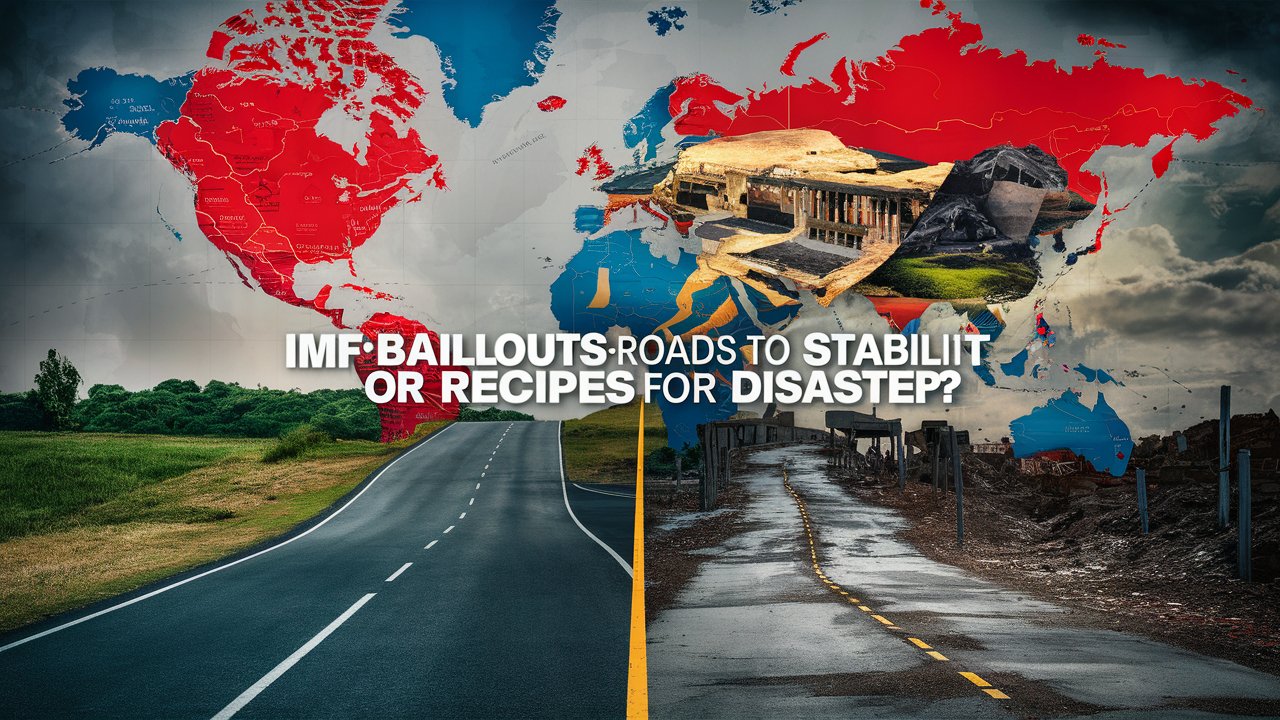10. IMF bailouts: roads to stability or recipes for disaster. 2020

IMF bailouts: roads to stability or recipes for disaster. 2020
Introduction:
The International Monetary Fund (IMF) is an international organization that provides financial assistance to countries facing economic challenges. The IMF provides these countries with loans, technical assistance, and policy advice in exchange for economic reforms. While IMF bailouts can provide much-needed financial assistance, they can also have significant economic and social consequences. In this essay, I will examine whether IMF bailouts are roads to stability or recipes for disaster.
The Pros of IMF Bailouts:
One of the main advantages of IMF bailouts is that they provide countries with access to much-needed financial assistance. When a country faces economic challenges, it may not have the financial resources to address these challenges. The IMF can provide loans that can help the country stabilize its economy and address its economic challenges.
Another advantage of IMF bailouts is that they can help countries implement economic reforms that can improve their economic performance. The IMF often requires countries to implement economic reforms as a condition for receiving financial assistance. These reforms can include measures to reduce government spending, increase tax revenues, and improve the business environment. These reforms can lead to increased economic growth, job creation, and improved living standards.
IMF bailouts can also help countries address external shocks such as fluctuations in commodity prices, changes in global interest rates, and changes in global trade patterns. These external shocks can have a significant impact on a country’s economy, and IMF bailouts can provide a cushion to help the country weather these shocks.
The Cons of IMF Bailouts:
While IMF bailouts can provide much-needed financial assistance, they can also have significant economic and social consequences. One of the main criticisms of IMF bailouts is that they can lead to austerity measures that can hurt the most vulnerable members of society. The IMF often requires countries to implement measures such as cuts in social spending, increases in taxes, and reductions in subsidies as a condition for receiving financial assistance. These measures can lead to increased poverty and inequality.
Another criticism of IMF bailouts is that they can lead to a loss of national sovereignty. When a country receives an IMF bailout, it must agree to implement economic reforms that are often prescribed by the IMF. This can lead to a loss of control over economic policy and can limit a country’s ability to pursue policies that are in its best interests.
IMF bailouts can also lead to a moral hazard. When a country knows that it can receive a bailout from the IMF, it may take on excessive risks, knowing that the IMF will be there to bail it out if things go wrong. This can lead to a situation where countries become dependent on IMF bailouts, and their underlying economic problems are not addressed.
Conclusion:
In conclusion, IMF bailouts can provide much-needed financial assistance to countries facing economic challenges. They can also help countries implement economic reforms that can improve their economic performance. However, IMF bailouts can also have significant economic and social consequences. They can lead to austerity measures that can hurt the most vulnerable members of society, lead to a loss of national sovereignty, and create a moral hazard. The IMF must strike a balance between providing financial assistance and addressing these concerns. It must ensure that its policies are aligned with the interests of the countries receiving assistance and that the conditions for receiving financial assistance are not overly burdensome.
Visit: https://scholarshipresort.com/